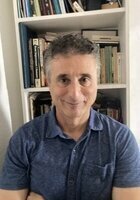All AP European History Resources
Example Questions
Example Question #71 : 1500 C.E. To 1900 C.E.
Secularism, which emerged during the Renaissance period, is the belief that __________.
None of the other answers is correct.
common language is the root of nationality
art and artistic pursuits are the highest achievements and goals of mankind
political power is for the immoral and amoral
political and religious life ought to be separated
political and religious life ought to be separated
Secularism emerged as a political and social philosophy in the Renaissance period of European history and grew in influence during the Enlightenment and Industrial eras. It advocates primarily for the separation of the political and the religious (for example, no laws based on religious codes, etc.). It also contends that life on Earth is "more important" than the afterlife and that all religious beliefs should be tolerated, although these tenets of secularism were added by degrees as the centuries went by.
Example Question #76 : 1500 C.E. To 1900 C.E.
This philosophy was centered around the study of classical writings and emphasized the inherent potential of human-beings.
Socialism
Dogmatism
Classicism
Calvinism
Humanism
Humanism
Humanism arose in the early part of the Renaissance period. It was based on the study of classical writings, and the early humanists revered the Greek philosophers like Aristotle and Plato. Humanism emphasized the inherent ability of people to reason, to think critically, and to examine phenomena via evidence.
Example Question #11 : Secularization Of Learning
This French philosopher is sometimes referred to as the founder of modern Western philosophy due to his development of the methodic doubt, a systematic process of doubting the veracity of one's own beliefs.
Peter Abelard
René Descartes
Nicolas Malebranche
Henri Bergson
August Comte
René Descartes
Another name for methodic doubt is Cartesian doubt. Rene Descartes was among the most influential philosophers of the 17th century, as evidenced by the use of a variation on his name as a, not uncommon, adjective.
Certified Tutor
All AP European History Resources




